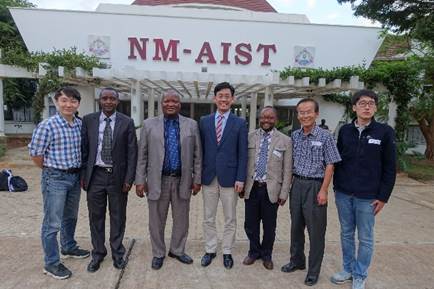- About
- Academics
-
Undergraduate Programs
- Civil and Environmental Engineering
- Architecture and Architectural Engineering
- Mechanical Engineering
- Industrial Engineering
- Energy Resources Engineering
- Nuclear Engineering
- Materials Science and Engineering
- Electrical and Computer Engineering
- Naval Architecture and Ocean Engineering
- Computer Science and Engineering
- Aerospace Engineering
- Chemical and Biological Engineering
-
Graduate Programs
- Civil and Environmental Engineering
- Architecture and Architectural Engineering
- Mechanical Engineering
- Industrial Engineering
- Energy Systems Engineering
- Materials Science and Engineering
- Electrical and Computer Engineering
- Naval Architecture and Ocean Engineering
- Computer Science and Engineering
- Chemical and Biological Engineering
- Aerospace Engineering
- Interdisciplinary Program in Technology, Management, Economics and Policy
- Interdisciplinary Program in Urban Design
- Interdisciplinary Program in Bioengineering
- Interdisciplinary Program in Artificial Intelligence
- Interdisciplinary Program in Intelligent Space and Aerospace Systems
- Chemical Convergence for Energy and Environment Major
- Multiscale Mechanics Design Major
- Hybrid Materials Major
- Double Major Program
- Open Programs
-
Undergraduate Programs
- Research
- Campus Life
- Communication
- Prospective Students
- International Office
Seoul National University, will establish an appropriate technology center in Tanzania
-
Uploaded by
관리자
-
Upload Date
2017.09.29
-
Views
712
Seoul National University, will establish an appropriate technology center in Tanzania
-A project which aims to disseminate the renewable energy and agricultural techonologies and to cultivate 1000 young entrepreneurs lead by Prof. Sung-Hoon Ahn

▲ The agreement ceremony between Seoul National University and African Advanced Institute of Science and Technology (NM-AIST)
Seoul National University will establish a research center in Africa for the first time in Korean universities. The project aims to disseminate appropriate renewable energy and smart agricultural technologies for Tanzania, which suffers from the electric power shortage and a food shortage. They made a plan to cultivate 1000 young entrepreneurs for the next four years to help them grow up through interaction with Korea.
Seoul National University, College of Engineering (Dean Kunwoo Lee) announced that they will establish an ‘appropriate technology research center’ which conducts research on appropriate technologies and cultivates local entrepreneurs in Arusha, Tanzania on the August which is lead by a Prof. Sung-Hoo Ahn of Department of Mechanical & Aerospace Engineering.
Appropriate technology means local customized technology for improving the quality of life in the local region such as a manual water pump. This is the first time that a domestic university has established a research institute in Africa with both academic and educational functions.
Seoul National University, College of Engineering focuses on the growth potential of Tanzania, which has abundant resources such as golds and coffees, and also politically stabilized. Although the country’s per capita income is only 840 US dollars (as of 2016), the economy is growing at a rate of 6~7% per year, with a population of 54 million, making the country as “Blue Ocean” in the East Africa.
Tanzania government is actively trying to bring in foreign universities due to the lack of research and education infrastructures necessary for growth. Nelson Mandela, African Institute of Science and Technology (NM-AIST), is regarded as the KAIST in Tanzania. Nevertheless, there are only four colleges and 45 professors. NM-AIST will provide about 1,000 square meters of land and buildings to the Seoul National University for free.
Seoul National University will accredit 20~30 researchers every year to operate the center. The research team of Prof. Sung-Hoon AHN plans to install a new renewable energy plant using four solar power wind turbines at four remote villages and will provide electricity to 1200 villagers.
The center also houses support facilities to help young entrepreneurs in Tanzania. The first chairman of the center will be Hyeup-Seung Lee, a president of the E3empower, who developed a low power photovoltaic energy panel in Silicon Valley, USA. After receiving a Ph.D. in Mechanical Engineering from Stanford University, he has established E3empower, a social enterprise that supports small start-ups in underdeveloped countries in Africa.
The project will provide technology and entrepreneurship training programs to train 1000 young entrepreneurs during the first four-year period. The Ministry of Science and ICT will support 2 billion won for four years.
Prof. Ahn said, “A cooperation system is based on the local know-how of social enterprises and the technology of university researchers. The goal is to establish two local start-ups (new venture companies) representing Arusha City and make more than five technology contractions. ”
Prof. Kun-Woo Lee, the Dean of Seoul National University College of Engineering, said, “It will be a test site for a new model which develops appropriate technologies for the local market whereas traditional projects were only based on the ODA (Official Development Aid) model. In the long-term, we will spread the project to neighboring countries such as Kenya, Malawi, Mozambique and etc.”